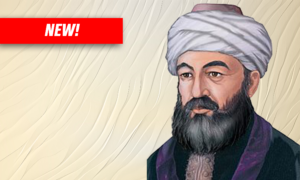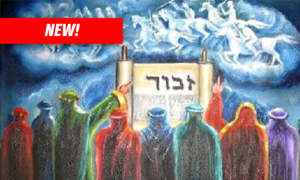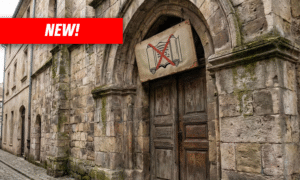A. The Leader’s Role
The verse states “and you should command the children of Israel, and they should take to you pure olive oil, crushed for the lamp” (Source 1). The Rebbe Rayatz asks: (a) usually the verse says “command” or “say” to the children of Israel. Why does our verse says “you should command”? (b) Why does the verse say “crushed for the lamp” instead of “oil to illuminate”?
The Rebbe explains that the words “you should command” define the role of Moses, to connect the Jewish people with G-d. How does Moses do this? In three ways, as will be explained.
B. The Shepherd of Faith
Moses is the shepherd of faith, helping the people internalize their faith. An example of transcendent, non-internalized, faith is a thief praying to G-d for success in a heist. If he believes in G-d, why does he steal? This is an expression of transcendent faith – he believes, but this belief is not part of conscious processes. To some degree, we all suffer from this problem (Sources 2-3). When Moses teaches the Jewish people to internalize their faith he is connecting them to G-d.
Story: She says, I know!
C. Inspiring Self-Sacrifice
During the time of Haman’s decree, Mordechai – the Moses of his generation – inspired the Jews to remain firm in their commitment to G-d and not to renounce their faith, even at the risk of their lives.
The Megillah states “the Jews accepted that which they had begun doing.” This means that the giving of the Torah at Mt. Sinai was just the start, and the final acceptance of the Torah occurred during the period of Purim (Source 4).
This raises the question: At Sinai the Jewish people were on the highest spiritual level, yet this is termed just the “beginning.” During Haman’s decree the Jewish people were at a physical and spiritual nadir – how could this be the time for the final acceptance of the Torah?
The answer is that while the state of the people during Haman’s decree was indeed at its lowest point, this was when they expressed their readiness to sacrifice their lives for G-d. This is why this constituted the final acceptance of the Torah.
This answers the question of why the verse says “crushed for the lamp.” Self-sacrifice in the hardest times, “crushed,” is what enables us to reach “the lamp,” the deeper level of our souls.
When Mordechai inspired the Jewish people to risk their lives for G-d he revealed the essence of their soul, thereby connecting them with G-d.
Story: To the last drop of blood
D. An Alternative Crush
Even living in physical and spiritual comfort we can still feel completely “crushed” – from the fact that G-d’s presence isn’t revealed in this world.
Moses showed an example of this. He had comprehended 49 levels of Divine understanding, but he was “sick” with his yearning to reach the 50th level. The Alter Rebbe would say “I want nothing at all! I don’t want Your Paradise, I don’t want Your World to Come… I want nothing but You alone.”
When the leader of the generation inspires us to feel broken due to the lack of Divine revelation in this world, he is revealing the essence of our soul and connecting it G-d.
(It can be suggested that this point is expressed in the Rebbe’s shlichus outreach effort. The Rebbe inspires us to feel broken when we hear about a community that has no Jewish life, and travel there in order to transform the place.)
Story: Caring for a remote community






